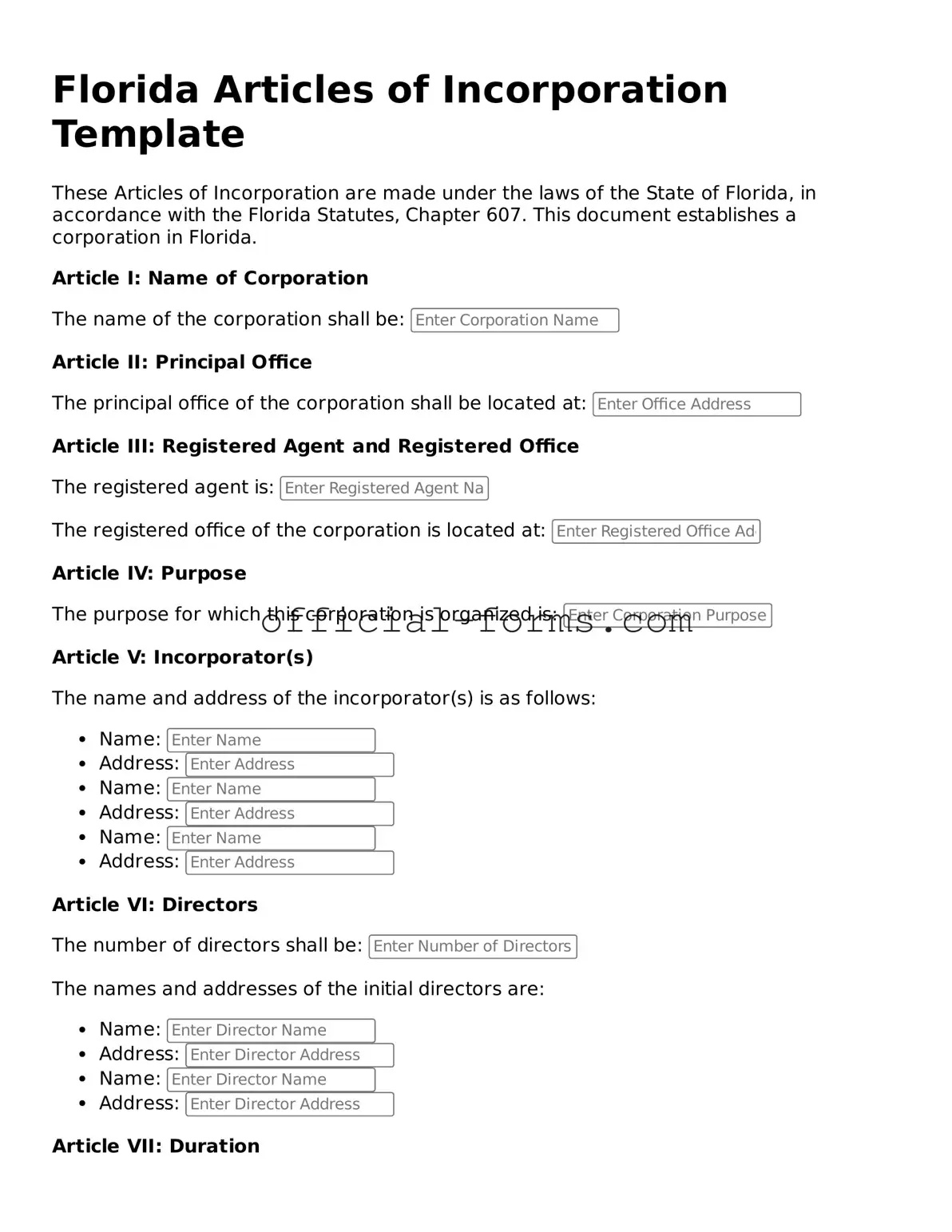Official Florida Articles of Incorporation Document
The Florida Articles of Incorporation form is a legal document that establishes a corporation in the state of Florida. This form outlines essential details about the business, including its name, purpose, and structure. Completing this document is a crucial step for anyone looking to create a corporation and enjoy the benefits of limited liability and formal recognition under state law.
Open My Articles of Incorporation Now

Official Florida Articles of Incorporation Document
Open My Articles of Incorporation Now
Don’t leave your form incomplete
Finish Articles of Incorporation online quickly from start to download.
Open My Articles of Incorporation Now
or
➤ PDF
